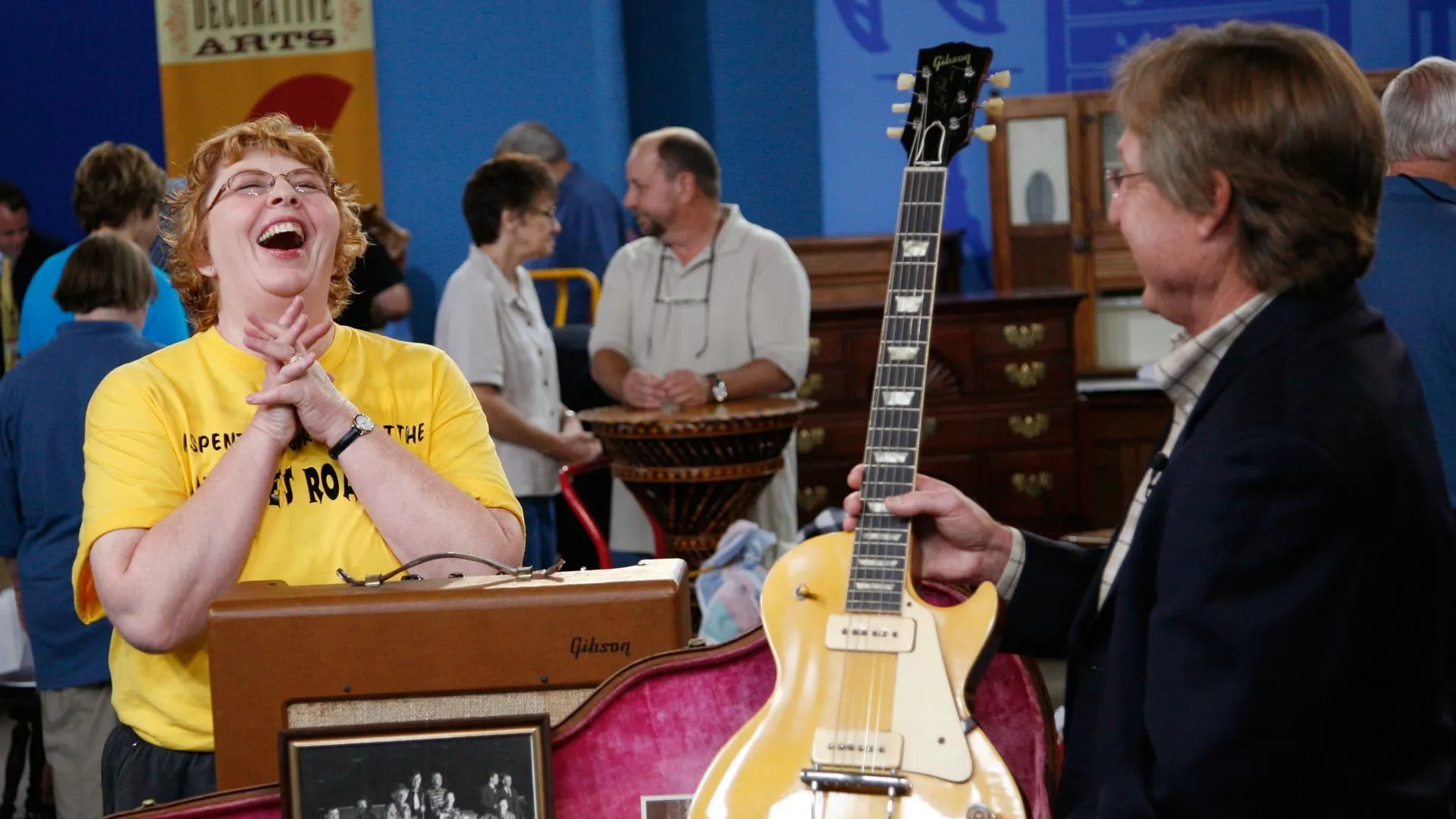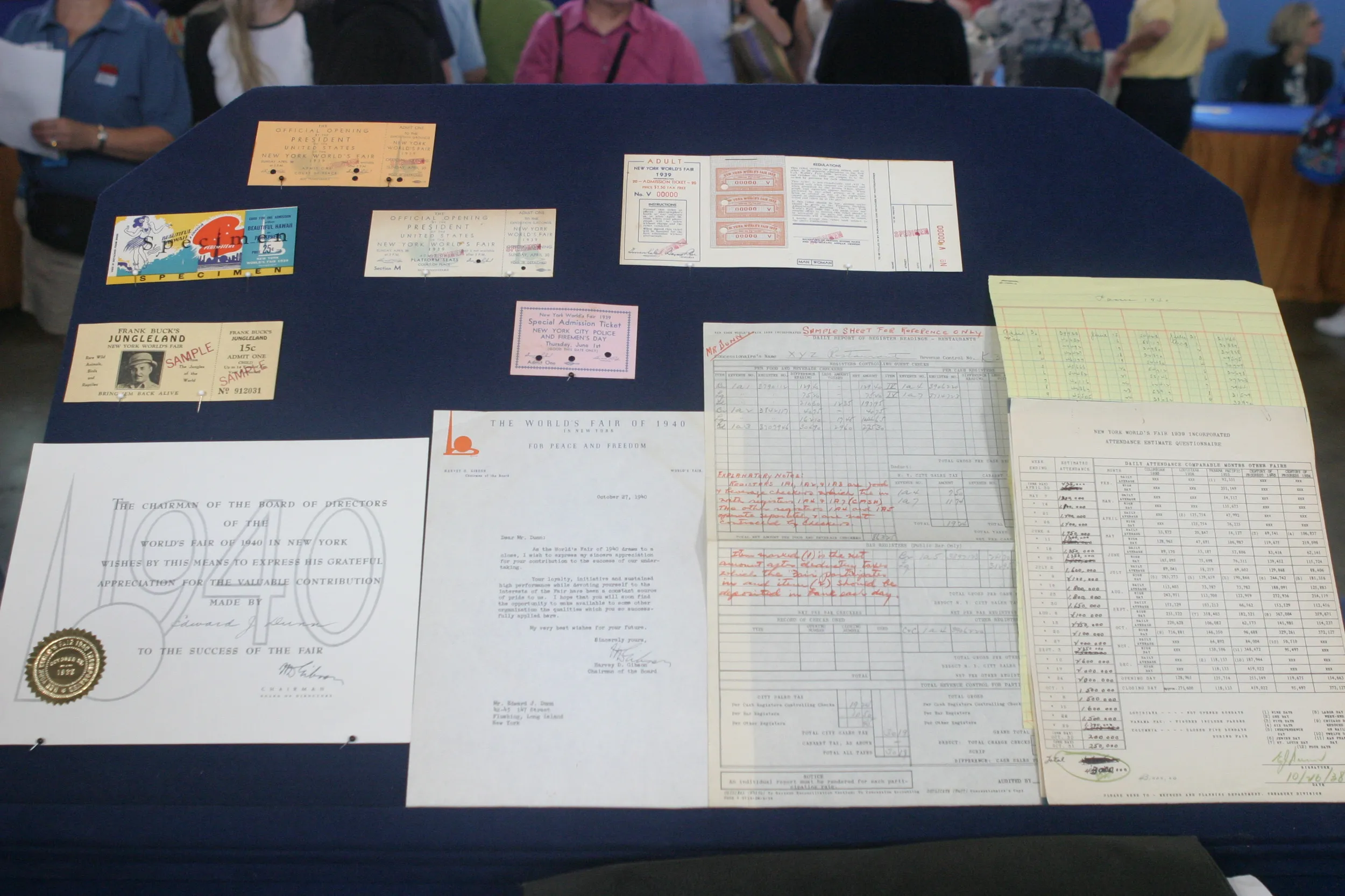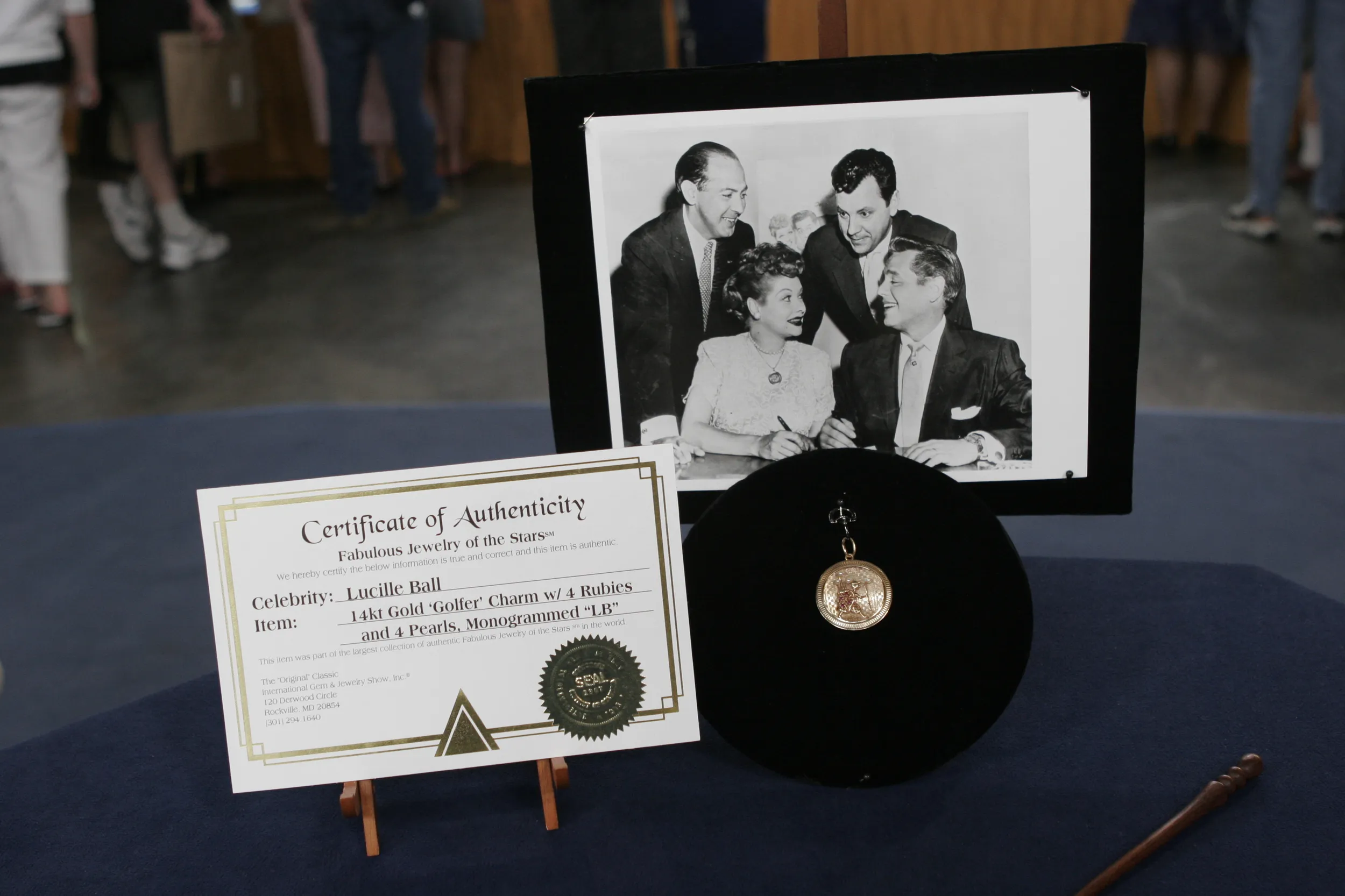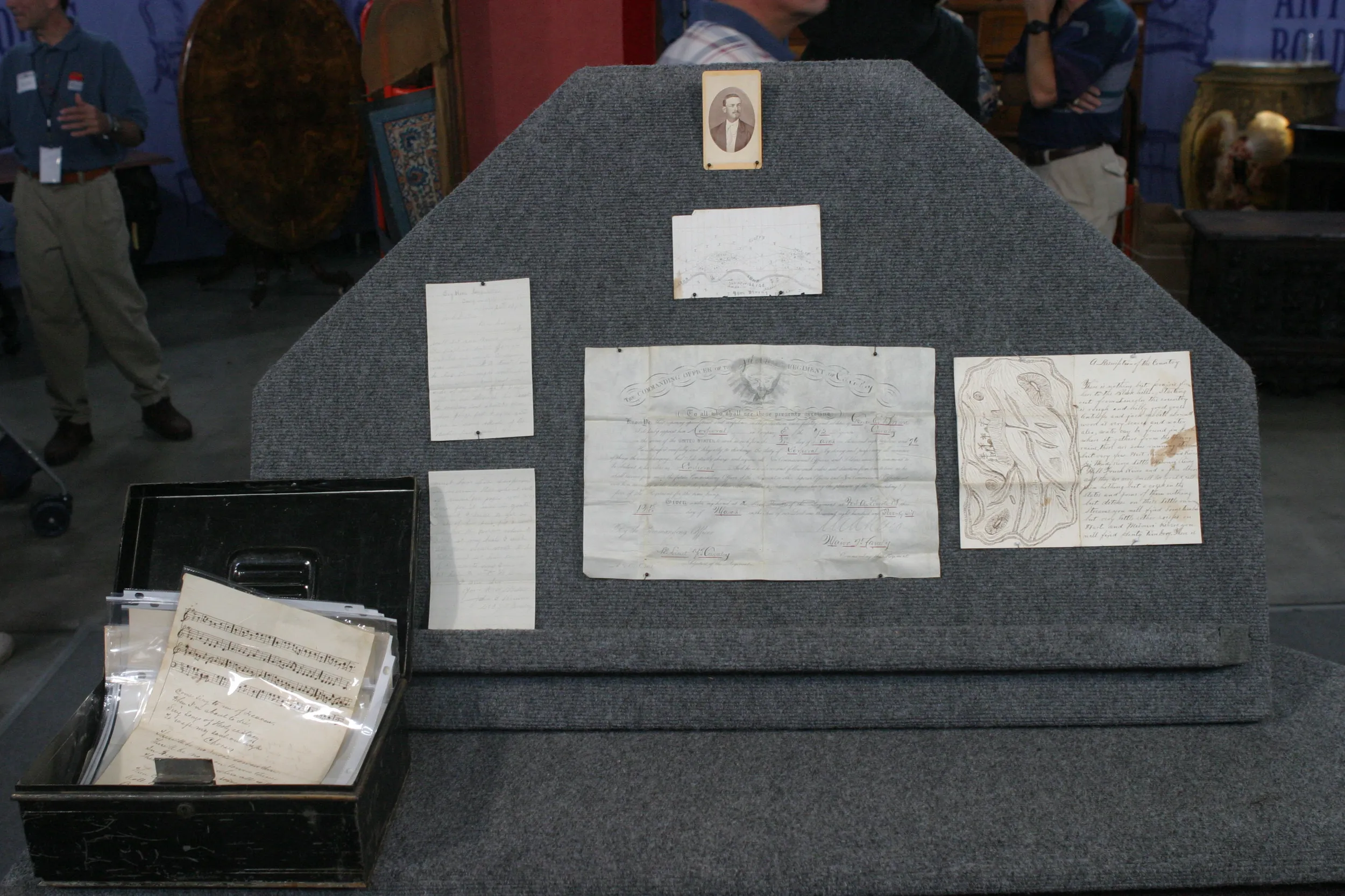GUEST: My late husband had purchased an oil field cannon from a gentleman that lived out near Augusta, Kansas, a town just east of here, and... he just threw in this stack of old books.
APPRAISER: So, as a little extra on a trade.
GUEST: Yes.
APPRAISER: And how much did he pay for the cannon originally?
GUEST: I'm not sure, because I didn't, wasn't really interested in the oil field cannon myself, but I'm thinking it might have been, like, $1,800.
APPRAISER: Okay, so he paid a fair amount then.
GUEST: Yeah.
APPRAISER: Well, one of the first things you showed me when you came to our table is... you opened it up to a page and wanted to know whether that was Benjamin Franklin's signature.
GUEST: Yes.
APPRAISER: Uh, it's not Benjamin Franklin's signature. That's the bad news.
GUEST: Okay.
APPRAISER: The good news is, it's one of the more interesting books I've seen on the Roadshow in quite some time.
GUEST: Wow.
APPRAISER: And the reason is, that if you look at the spine... here, you can see a "C", a "T", and an apostrophe "S," uh, from what's left of the original spine label, and that probably said "tract's," T-R-A-C-T-S. What this is, is a collection of tracts, all published in the early and mid 18th Century in Great Britain about her colonies in America, but the collection of pamphlets was bound up in America. One of the things you see here is an early American library label.
GUEST: Yeah.
APPRAISER: It says, "York County Library #68." So, this is actually one of the first books they would have in the library listing. 1794. Now, that's a fairly early library label for an American library. So, that's fun from a book collector's standpoint to see that in there. It also says this was sold at auction. So at some point, the library sold off some of its books at auction, and you see a later American bookplate from the collector when he probably bought it at the auction sale. Now, as a collection of pamphlets, each one of these has to do with the trade from Britain and her colonies. This is probably the most interesting pamphlet, here. Some Observations on the Assiento Trade South Sea Company... Damage Done to the British Commerce in America, Particularly to Jamaica. Now, the trade they're referring to is the slave trade.
GUEST: Oh.
APPRAISER: So, this is actually... the assientios were the licenses that were granted by the Spanish king for the importation of slaves to the New World, and this is actually an early anti-slavery tract, 1728. Now, the entire book consists of seven or eight tracts all on either trade in the West Indies, trade in the American colonies, and in one case, an expedition in the French and Indian War. The collection of tracts taken as a whole, being in an early American binding...
GUEST: Mm-hmm.
APPRAISER: with these nice labels, Lots of interest for American book collectors. I would easily place the collection at auction $3,000 to $5,000.
GUEST: Wow.
APPRAISER: So, for being thrown in
GUEST: Yeah.
APPRAISER: in a trade, that's a nice little extra.
GUEST: (laughs) Very nice.









